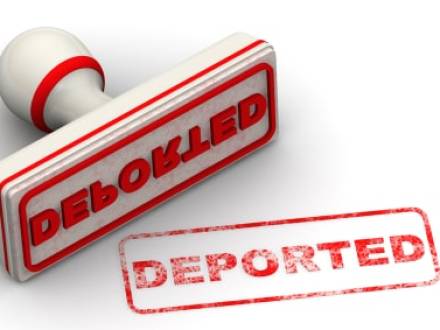Challenges for Texas Deportation Law as Other States Follow
 Texas has recently enacted a controversial immigration law, S.B. 4, which allows state police to arrest and deport individuals suspected of unlawfully crossing the Mexican border. This legislation, signed by Governor Greg Abbott in December, has faced significant opposition from civil rights groups and is currently awaiting constitutional review. Despite the legal challenges, other states such as Oklahoma, Iowa, and Arizona have proposed similar rules, sparking a national debate on state-level immigration enforcement. This situation and the rules applied can get confusing, but a Texas lawyer can help you understand the facts.
Texas has recently enacted a controversial immigration law, S.B. 4, which allows state police to arrest and deport individuals suspected of unlawfully crossing the Mexican border. This legislation, signed by Governor Greg Abbott in December, has faced significant opposition from civil rights groups and is currently awaiting constitutional review. Despite the legal challenges, other states such as Oklahoma, Iowa, and Arizona have proposed similar rules, sparking a national debate on state-level immigration enforcement. This situation and the rules applied can get confusing, but a Texas lawyer can help you understand the facts.
The Controversial Texas Law and Its Implications
S.B. 4 represents a significant shift in immigration enforcement at the state level. The law empowers Texas state police to take a more active role in immigration matters, traditionally the domain of federal authorities. Civil rights advocates argue that this legislation is unconstitutional and contradicts federal immigration policy. The law’s opponents have filed lawsuits to prevent its implementation, originally scheduled for March. The Texas law has significant implications:
- Potential for racial profiling and civil rights violations
- Interference with federal immigration policies and procedures
- Challenges to the established legal framework of immigration enforcement
Other States Follow Texas’ Lead
Following Texas’ example, several other states have proposed or passed similar legislation:
Oklahoma
- House Bill 4156, modeled after the Texas law, was set to take effect on July 1
- A court ordered a pause on its implementation
- The ACLU of Oklahoma, National Immigration Law Center, and Rivas & Associates filed a lawsuit on behalf of Padres Unidos, a Tulsa-based community support group
Iowa
- Senate File 2340 was signed into law in April
- The ACLU has described it as "one of the most egregious immigration laws in the history of Iowa."
- A federal court issued an injunction on this law
Arizona
- HCR 2060, a ballot referral immigration bill, passed in early June
- If approved by voters in November, it would make unauthorized border crossing a state crime
- The bill grants immunity to local government and police officials during enforcement
- Civil rights advocates warn of potential racial profiling and disruption of the asylum process
Legal Challenges and Constitutional Concerns
These state-level immigration laws face significant legal hurdles:
- Constitutional challenges: Federal courts have consistently ruled that immigration enforcement is primarily a federal responsibility
- Potential for civil rights violations: Concerns about racial profiling and discrimination against communities of color
- Interference with federal immigration policies: These laws may disrupt established federal procedures for handling immigration cases
Legal experts and civil rights organizations argue that these laws create chaos and human suffering while overstepping state authority in immigration matters. The American Immigration Council emphasizes that such laws have no place in the U.S. legal system and cause irreparable harm to immigrant families.
Work With a Dallas, TX Immigration Attorney
As these legal battles unfold, it is crucial for individuals affected by these laws to seek professional guidance from a Plano, TX immigration lawyer. If you or someone you know is facing immigration issues, call Law Office of Jae Lee at 214-295-3014 to start with a free consultation.






